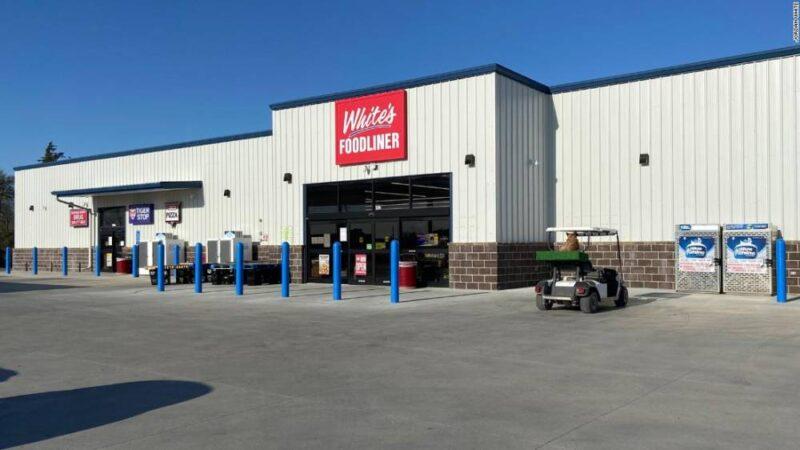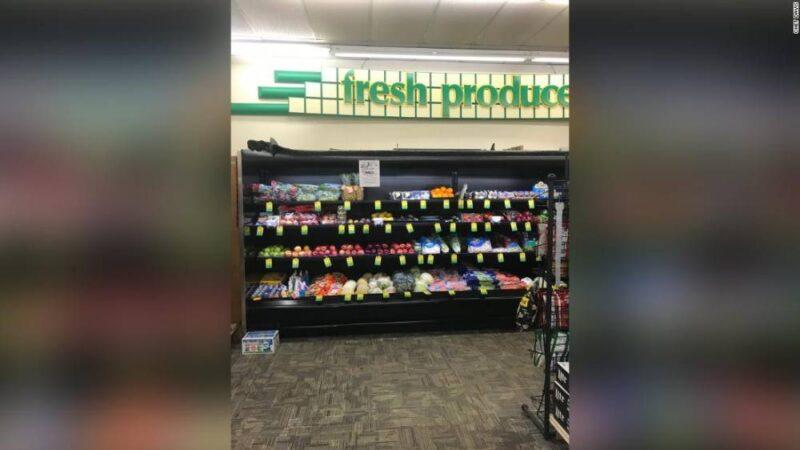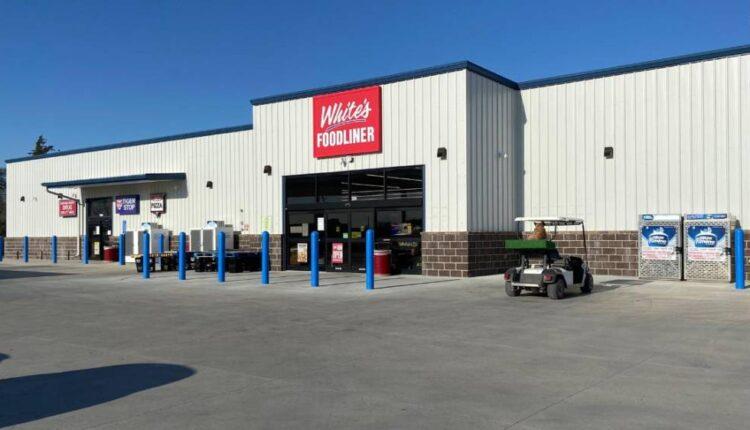New York (CNN Business)Small town grocery stores have been struggling, first against the rise of Walmart and then from the growth of Dollar General. But for many independent grocers across America, the coronavirus has provided an unexpected lift.
“All of a sudden, it’s been an opportunity to address the challenges they have seen for years and years,” said David Procter, director of the Rural Grocery Initiative at Kansas State University. In rural Kansas, where more than 100 grocery stores have closed since 2008, a new store has not re-opened in 50% of those communities, according to the Rural Grocery Initiative. The situation is similar in other Farm Belt states. North Dakota has lost 20% of its rural grocery stores in the last five years, according to the North Dakota Association of Rural Electric Cooperatives.
Small town grocery stores have been bruised by several trends, experts say. The rise of such big box chains as Walmart (WMT) has pulled customers away. Wholesale distributors have consolidated, making it challenging to find vendors that are even interested in supplying small stores. And sales have dried up as the population has declined in many rural areas and some jobs have shifted outside small towns to larger suburbs and cities.

White’s Foodliner in St. John, Kansas.Additionally, Dollar General (DG) is opening 1,000 stores a year, mainly in small towns, chipping away at independent grocers. “Dollar General stores have had a significant impact on stores that are closing,” Procter said. “That has been the event that has pushed them over them edge.” Read MoreHowever, grocery owners and experts say the coronavirus crisis has led many customers to rediscover their local grocery stores. Some shoppers are turning to local grocers because items they are looking for are out of stock at big box chains. Others are shopping at their local stores to stay closer to home and avoid large crowds.”We’re not as crowded as the big chain stores,” said Chet Davis, owner of Chet’s Foods in Kingsley, Iowa. “There are no people elbow to elbow as you’re shopping.”Like larger chains, small grocers have adapted to the crisis by expanding curbside pickup and delivery, adding dedicated hours for older shoppers and partnering directly with farmers to buy their produce and other products. Sheriffs’ deputies and police officers have helped out by delivering groceries to vulnerable residents, too.”The shift from eating in restaurants to eating in home has created a much needed demand from our rural grocers,” said Lori Capouch, development director at the North Dakota Association of Rural Electric Cooperatives. Capouch said rural grocers’ sales in March were up 100% to 125% compared with last year. “It has slowed some now, but still running ahead of last year by 25% or more.”It’s too bad it has taken an event like this to increase sales, but it clearly demonstrates the need to maintain our local access to healthy foods,” she added.Jordan White, owner of five grocery stores in Kansas, said his stores “got that initial pop of frenzy buying,” with sales in some stores up 40% and others up 100%. “Our biggest challenge is refilling our stores, getting all these things back in stock,” he said. White buys from a wholesale grocer in Kansas City.

The produce section at Chet’s Foods in Kingsley, Iowa.But owners wonder how long the coronavirus boost will last and whether it will change the long term outlook for business.”We’re just hoping that people remember what’s happened and that we’re still here,” Chet Davis said. “We do what we can for our people.”Some grocers believe the outbreak will accelerate the rise of online shopping. This shift may hurt some independent grocers running on already thin profits. Online orders are less profitable than buying in stores.”Before this coronavirus hit, I was thinking if we weren’t in online shopping in three years, it was going to be like selling VHS tapes during the DVD era. Today, if you don’t get in online shopping in the next 12 weeks, I think this thing might leave you behind,” said Jordan White from Kansas.
“When all the dust settles and people are more in tune with online, there’s going to be a significant hit long term” to small grocers, he said.Nick Graham, who closed several of his grocery stores in rural Iowa towns after struggling to turn a profit, agreed. Coronavirus is “going to make it much tougher,” Graham said. Grocers “need tremendous scale to make e-commerce work. That’s where it’s headed.”
Source: edition.cnn.com

